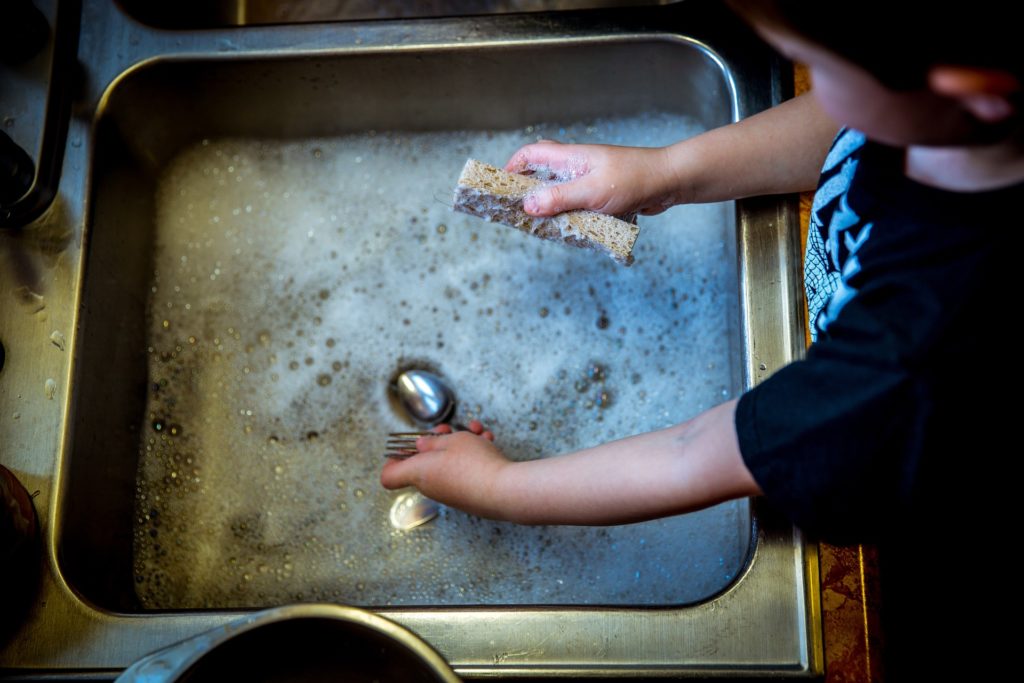Do boys and girls learn differently? The short answer to this question is yes! Of course, they do.
However, the follow-on question from this is: how and why do boys and girls learn differently?
To answer these questions, we need to look at this in a little more detail. So, let’s look at how do boys and girls learn differently first.
How do Boys and Girls Learn Differently?
Recent studies into schooling, show that girls enjoy schooling more than boys. This is no surprise to teachers, as many boys have to exercise a lot of self-control and restraint, to sit still for hours. Especially when they would much rather be involved in physical activities. Girls in contrast, would prefer to do exactly what schools require – to sit and acquire knowledge academically. I admit this is a generalisation, but for the vast majority of girls it’s true. They also enjoy sports, but at a more relaxed pace. (And yes I am generalising again.)
All teachers, and parents, who have children of both genders, know without sounding stereotypical, that boys are also ‘wired differently’ to girls. They are more kinaesthetic learners and prefer to be more active and physical.
They usually have double the energy of some girls and quite frankly can be a real ‘handful’.
Having lost count of the 1000s of children I’ve taught over two decades; having a son and two daughters of my own, I know this from personal experience.
My son has always had more strength and energy than both my girls put together. Actually, my son has more energy than ten of my daughters put together – he is an absolute powerhouse. And even though I’d been a teacher for a few years before he was born, I had no idea what a tornado he was going to be after having my oldest daughter, who was 2 years his senior.
He would literally be on the go from 6 o’clock in the morning, till his head touched the pillow at night. If there was no pillow, he honestly didn’t stop. He’d just keep going, but got crankier, like a malfunctioning battery-operated toy.

Parenting isn’t easy no matter how expereinced you are with children
I don’t mind admitting he was a real shock to my system. He was up to everything and into everything – Forget eyes in the back of your head, I needed 360˚ vision. He was so fidgety before he was born, I was convinced I was having twins – triplets even. But luckily, I only had one of him – so I didn’t have to pull all my hair out.
What’s even funnier, 20 years on, he recently saw old video clips of himself and said, “That kid is really annoying!” causing me to erupt into laughter. He didn’t even realise he was watching himself. Once he realised it was him, he couldn’t bear to watch any more.
For years, I’d endured those visions of him in real life and yet he couldn’t watch his own antics for more than 5 minutes! (I can’t wait till he has children of his own.)
At school, he was a nightmare and always in trouble. He didn’t like schoolwork or learning. Parent evenings with his teachers were quite honestly embarrassing. To the point, I never admitted to his teachers, that I was actually a teacher myself. I kept that one quiet. He also hated the fact that I was a teacher. He once asked me, why I couldn’t be a ‘normal mum’ like his friends had.
My daughters on the other hand were an absolute delight. They loved schoolwork, got certificates, prizes and went out of their way to make me proud.
All is not lost
When my son and oldest daughter attended school together, none of the teachers could believe they were related because they were such opposites.
My daughter loved school, my son didn’t. My daughter collected certificates and trophies, my son spent break times and lunch times outside the head teacher’s office. You get the picture.
Despite being labelled stupid for many years, (which he really wasn’t), my son finally clawed his way into university, following in his sister’s footsteps, much to everyone’s surprise. Today I couldn’t be more proud of him.
So, although boys can be terrors, all hope really doesn’t have to be lost on them. As a parent, you simply need to develop greater patience and resilience.
Why do boys and girls learn differently?
The truth is boys are not more stupid or less intelligent than girls, they just develop emotionally at slower rate. This, inevitably impacts their learning.
Although, my son was only 2 years younger than my daughter, emotionally he was 4 years younger, which meant he needed a little longer time than my daughter to ‘grow up’.
It’s this slower emotional development that affects many boys so badly and gives them a bad rap. Those who are born between May and August have an even harder time, as they are the youngest in their year group and developmentally, almost a year behind their peers.
Being fidgety, easily bored and unable to sit still for any serious length of time, it begs the question, is education really designed to favour girls more than boys?

So what does that say about the education system?
The truth is, teachers have known for years that boys do not do as well as girls in school, but only recently has this been scientifically documented. Research shows that the vast majority of boys fare better in practical subjects, where they can be more active, such as P.E, DT or Science.
This was evident to me when I was a Design and Technology teacher in Secondary school.
Here the majority of my GCSE classes were full of boys, with only a handful of girls added in for contrast.
Boys on the whole, without sounding stereotypical, do not enjoy sitting for long hours reading, writing and doing sedentary type work. I admit there are exceptions, but on the whole, the vast majority of boys struggle with school.
Most of the children I tutor, who are furthest behind in school and have the greatest academic challenges – are boys; most of the children who have the worst behavioural issues in school – are boys.
Even in my own family, where I have 2 girls and one son; my son complained regularly throughout school that he did not enjoy schoolwork, homework or anything academic. He much preferred sports and being outdoors. Both my daughters in comparison, loved education and feeding their brains. While they also enjoyed sports, they had a more balanced approach to all areas of education.
How do boys and girls learning differently affect society?
While the roles of men and women have changed considerably over the last five decades.
I feel it is the fact that boys and girls learn differently – that has resulted in the success girls have enjoyed in school, which has in turn changed the dynamics of the workforce and society we live in now – not vice versa.
Many think society has changed, so schooling should change. Personally, I see it’s the way round, because schooling favours girls this has changed society.
In the 1970s, when women were expected to be homemakers, very few girls stayed on in school. But as more and more girls have enjoyed success in school and stayed on, they have moved into the working arena paving the way for other girls to follow. This has created greater competition between men and women in the workplace and ultimately with more women competing for the same jobs as men, more men are now staying at home to care for their children – reversing the roles.
In the 1970s, when I was a child, it was taken almost for granted that women would become homemakers and stay at home with the children, whilst the fathers went out to work. Nowadays, men are able to take paternity leave when a child is born and even stay at home to look after the baby, while the mother goes back to work.
It now seems ironic that a system that was originally created to educate boys, is in actual fact better suited to teaching girls; leading to questions of should it be changed to engage boys better.
The Way Forward for Learning
The truth is the education system has changed and is continuously changing. The latest updates have seen more practical activities and physical ways of learning being introduced to support more kinaesthetic learners and also engage boys better.
This can already be witnessed by parents who attend parent teacher meetings. When shown their children’s school books, parents now see – what can only be described as a photo album of all the activities their children have taken part in. These are in sharp contrast to the exercise books they wrote in themselves, when they were in school.
The practical activities witnessed in the photos, demonstrate the new ways of engaging all children, especially boys into the learning process, making learning equally accessible for both genders now.
Times Are Changing
As teaching in schools is very different these days, boys are able to access the curriculum more easily. This will create even greater competition for those coveted exam grades in the future. This will also lead to greater competition in the workforce and further changes in the family unit.
Whereas, in the past mothers stayed at home to look after the children, while fathers went to work. Recently a rise in fathers staying at home to look after their children, has been witnessed as mothers returned to work. But soon this trend will change again, as a more balanced society emerges, with both parents working and sharing the family responsibilities and dividing up the working week between them.
We can already see this happening, as fathers take paternity leave when a child is born, along with the mother, so that they can both bond with their baby from the start, in order to share responsibilities in the future.
In this way, both mothers and fathers will take it in turn to pick children up from school, make their dinner and help them with their homework.
As both parents choose to work, children will need to be cared for by multiple people: grandparents, childminders and so on, to ensure that they receive the best possible care.
In many cases, as children grow older, they will also need to become more self-sufficient and independent, helping out more around the house and doing more chores in their parents’ absence.
Routines to develop Discipline
To ensure the smooth running of households, these more dynamic households, need to become more disciplined and follow regular routines. They need to ensure meals are cooked, homework is done, children go to bed on time, wake on time, tidy up after themselves and so on, to avoid chaos.
All the junctions of the day, from the morning start, the school pick up to the evening meal and bedtime, need to be planned in advance to ensure home life runs like clockwork.
In my household, clothes, bags, book bags, homework everything, is planned the night before.
We all have our own bathroom slots in the morning depending on who has to leave the house first and who takes the longest to get dressed.
My daughters and I have breakfast “on the go”, while my son and husband prefer to sit and eat their breakfast at the kitchen table before they leave. Mainly because we girls take longer to get ready.
Whoever picks up my youngest daughter from school is also the one who ends up making the evening meal. We are not fussy about what has been cooked – just grateful we didn’t have to cook it, after a long gruelling day at work. We take it in turns to spend some time with my youngest daughter, which also involves helping her with her homework.
Everyone has their designated chores and where necessary, we also tidy up after eachother if someone is particularly busy.

Responsibilities and Discipline
The truth is for family life to work now, a lot of compromise, consideration and forethought is required.
If someone has a particular chore in the house, but will be away for a couple of days with work, then obviously someone else will have to pick up the slack.
All these responsibilities, that were once left to the mother, twenty years ago, cannot be left to her today, unless the family are willing to starve and live in a tip.
Modern families also have to be ultra-flexible, as situations can change at the drop of a hat. Children get sick; schools close for the holidays; you could even get sick. In these cases, alternatives are required. For this reason, many more people now enlist the help and support of extended families – grandparents, aunts and uncles.
All these changes to the family dynamics can teach both boys and girls a lot about life.
They can learn:
- Time keeping
- Organisational skills
- Planning ahead and forethought
- Self reliance
- Confidence
- Intuition
- Compromise
- Consideration
- Flexibility
- Initiative
But to learn these skills and qualities, they also need to see them displayed by their parents.
Down time
Once the weekly grind is out of the way, you then have time to make the most of your precious fun family time, at the weekends and holidays.
Plan these times in advance too, to make the most of them.
- Have a picnic
- Go to the seaside
- Go to the beach
- Visit a funfair
- Visit a farm, zoo or safari park
- Go to the park
- Visit the cinema
- Go to a restaurant
- Go for a walk in the woods
- Visit a river or a lake, hire a boat
- Go bowling
- Indoor rock climbing
- Jump on a plane a visit somewhere abroad
And so on…
